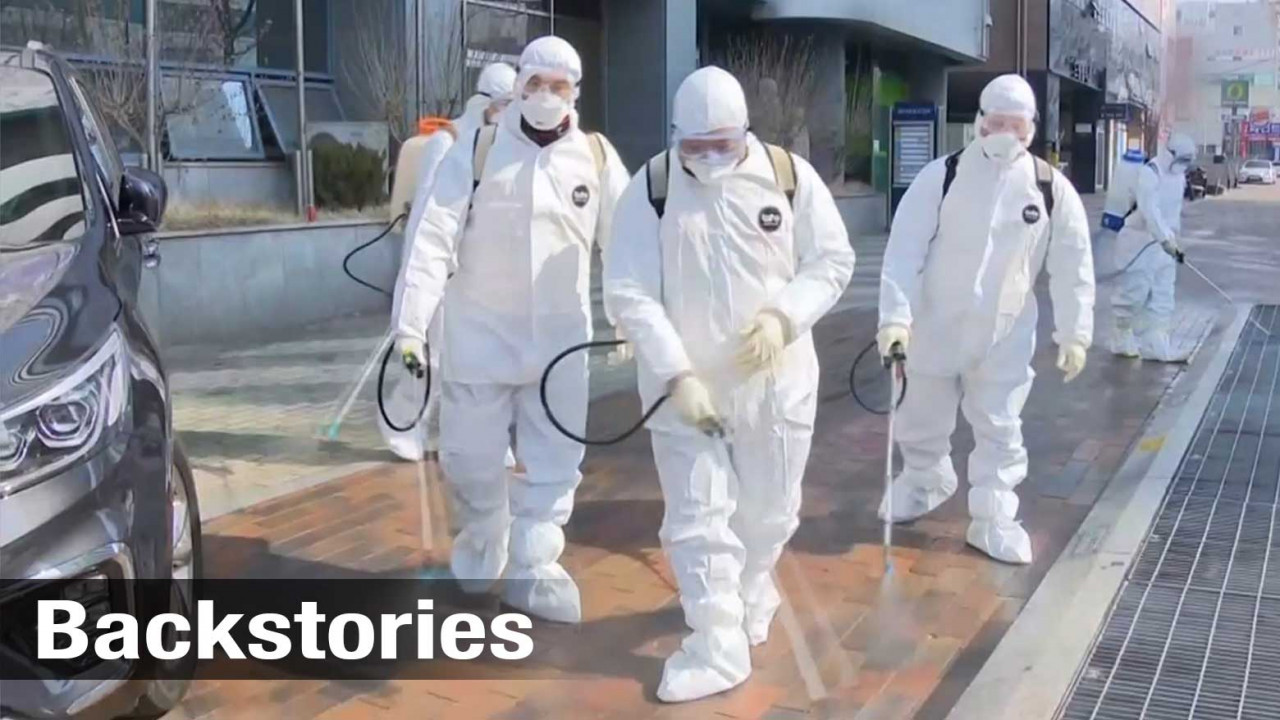 Spread of the virus The Korea Centers for Disease Control and Prevention (KCDC) says as of Monday morning, 4,214 people in the country have tested positive for the virus and 22 have died.The vast majority of cases have been detected in and around the southeastern city of Daegu.Over half have been traced to the Shincheonji Church of Jesus, a religious organization with a branch in the city.The country’s first case was confirmed on January 20th.In the following month, only about 30 additional cases were recorded.
Spread of the virus The Korea Centers for Disease Control and Prevention (KCDC) says as of Monday morning, 4,214 people in the country have tested positive for the virus and 22 have died.The vast majority of cases have been detected in and around the southeastern city of Daegu.Over half have been traced to the Shincheonji Church of Jesus, a religious organization with a branch in the city.The country’s first case was confirmed on January 20th.In the following month, only about 30 additional cases were recorded.
But the person who would go on to be known as “patient number 31” is believed to have introduced the virus to Shincheonji, at which point there was an explosion in infections.A senior government official says the church proved to be the ideal setting for the virus to spread, with many people crowded into a closed structure, chanting and shouting together.Shincheonji reportedly conducts missionary work around the world, including in Wuhan, the Chinese city where the coronavirus outbreak first emerged.
Some speculate a member brought the virus back to Daegu from such a trip.Health officials say they are currently testing nearly 250,000 Shincheonji members for the virus.But some members say this is too drastic a measure, and claim they are the victims of a witch hunt.Face mask shortage On Saturday, the government released face mask supplies for the first time in several weeks.It had been controlling exports of the product to build up stocks and supply them to state and public-run retailers, such as post offices and agricultural co-op supermarkets.Massive lines could be seen throughout Seoul and its neighboring areas.Some people waited for hours.Purchases were limited to five masks per person.
Like many others, I tried to buy masks online.I found tips on social media about which overseas suppliers still had some in stock.I finally found a site and quickly placed an order.But several days later, I received an email notifying me that my order had been canceled, as the product had sold out.
Getting my hands on a thermometer was also a challenge.
I went to five different pharmacies throughout Seoul but they were all sold out.Change in lifestyle Large parts of Seoul feel like a ghost town.Many of the city’s famous shopping and tourist areas are completely deserted.
Commuters on buses and the subway all seem to be wearing masks.And coffee shops, restaurants, and supermarkets have all placed hand sanitizer by their entrances.Government workers clad in protective gear can be seen spraying antiseptic solution in train stations and on the streets.Residents are increasingly relying on their phones for the latest information.Several apps give alerts on where the most recent cases have been confirmed and the hospitals where the patients are being treated.Throughout the country, KCDC district offices are providing information on areas where infected people were known to have traveled.The outbreak has ground life in the country to a halt.People are not going out after work, and movie showings and concerts have been mostly canceled.
Life is now largely lived at home.The number of online grocery orders and food deliveries has jumped since the virus arrived in the country.According to SSG.com, which tracks South Korean retail data, food deliveries increased 87% between February 19 and 23, compared to the previous week.
And according to GMarket, another retail tracker, sales of instant rice, noodles, and mineral water during the same period doubled compared to the week prior.Calling for unity President Moon Jae-in has raised the country’s emergency level to its highest mark.The police and military forces have been deployed in certain areas to help contain the virus and the health authorities have been holding twice daily briefings on the outbreak.In an effort to ease anxiety about testing and containment, the government has set up “drive-thru testing centers” where people can get their temperatures checked and fill out a questionnaire without leaving their vehicles.The process takes about five minutes and minimizes contact with medical staff.
The center informs the person of the results by text message.Amid the crisis, a sense of unity seems to be emerging.
#CheerUpDaegu is one of the positive hashtags that have been trending in recent weeks.This solidarity hasn’t been limited to social media.Building owners have lowered rents for struggling businesses, while some of the country’s biggest companies have made donations to health efforts.Major conglomerates such as Samsung, Hyundai, SK, and LG have given millions of dollars.For now, South Korea is gearing up for this state of affairs to continue for several months.But many are hopeful the country can come together and overcome the situation, in much the same way it has in past crises..
